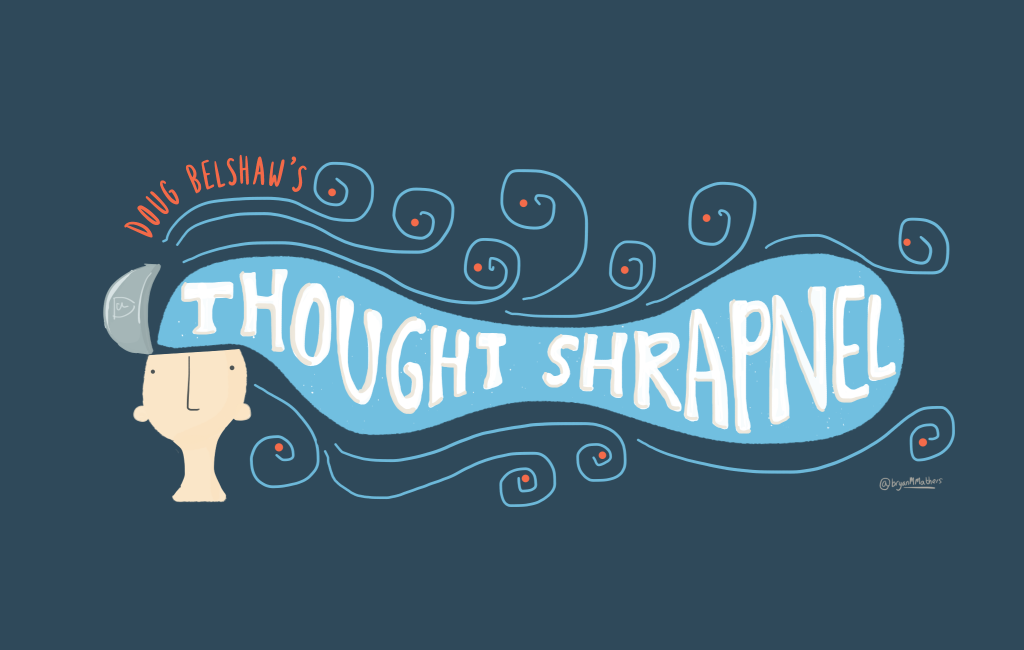40 things I’ve learned in 40 years.

I turn forty years old today. Some people will be surprised at this, as my hair has been turning grey for the last 15 years!
A decade ago, I wrote a post entitled 30 things I’ve learned in 30 years. While I still agree with most of that, on reflection it just doesn’t seem particularly… deep? So, here, in no particular order are 40 things I’ve learned in 40 years:
- There are things you can control and things you cannot. There is no point in worrying about the latter.
- Inspire other people to be inspired yourself.
- Most people care less than you think about almost everything that you deem important.
- Get some therapy, even if you don’t think you need it. Especially if you don’t think you need it.
- Keep your options open.
- Sometimes it’s OK to burn your bridges and to do so in a way that other people notice.
- Resist the urge to suppress randomness.
- Nobody knows what goes on inside your head until you say it or write it down.
- Happiness is not something that you can find, but rather is something that you discover when you stop looking for it.
- Organisations are groups of people that can have a positive or negative effect on the world. Do not work with or for the latter.
- Money can only buy choices, not happiness, time, or anything which constitutes human flourishing.
- Life is too short to deal with adults who display little in the way of emotional intelligence.
- Listen to what people actually say.
- Read inspirational things often, especially quotations and proverbs. Dwell upon them.
- Education is not the same as learning. Nor are qualifications the same as real-world knowledge, skills, and experience.
- Focus on routines and rituals. Nail these and you’re (mostly) sorted.
- Practice eloquence. People like listening to those who have a way with words.
- At the end of it all, the only person who stops you doing something is yourself. Confidence is a preference.
- Stand for something bigger.
- Find somewhere that is completely quiet and you can be undisturbed. Visit it often.
- Ask. People can only say no.
- You are a human, not a machine. You don’t need to sound grown up, or professional, or ‘respectable’.
- Money is important only in the way that it flows (both in society, and at family/individual level).
- 90% of ‘success’ (as other people define it) is being in the right place at the right time, the other 10% is extremely hard work.
- Perfect is the enemy of done.
- How you do something is as important as what you say or what you do.
- Transparency is the best policy.
- Exercise more than you think you need to. When you’re young you think your body will be in peak condition forever. It won’t.
- Endeavour to be the least knowledgeable person in the room at any given time.
- There is no final authority. Seniority is a mindset.
- Try and explain complex things to other people as often as you can. It’s a valuable process for both parties.
- Travel, both literally and metaphorically. Go on journeys and adventures by yourself and with others.
- Let other people boast and do your PR (but don’t believe everything you see/read/hear)
- Writing is a form of thinking
- Know what you like, but don’t get stale; mix things up sometimes.
- Habits can make or break you, so create positive ones.
- Avoidance is rarely the correct option.
- Technology can free people or it can enslave them, so work to give as many people as much freedom as possible.
- Removing ego from the equation gets things done.
- We all will die and don’t know when, so act today in a way whereby people will remember you well.
Much of these come through my daily(ish) reading of Stoic philosophers but also come via therapy sessions, Nassim Nicholas Taleb’s rules for living an antifragile life, Buster Benson’s Live like a hydra, and Dancing Fox’s Inappropriate Guidelines for Unacceptable Behaviour.
Image CC BY-NC-ND Jeronimo G+E


